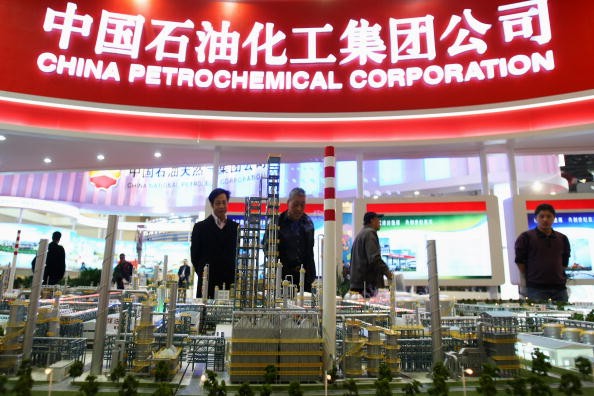China Petrochemical Corp (Sinopec) has gained approval from Moscow to purchase a 20 percent stake in Russian petrochemical and gas company Sibur, a move that focuses spotlight on one of China's biggest state-owned firms.
Under the agreement, Sinopec will acquire 10 percent of Sibur for approximately $1.34 billion then buy the other 10 percent within the next three years, China Daily reported on Wednesday citing Russian media sources.
Sinopec's shares dropped 0.4 percent to 4.9 yuan (76 cents) on Tuesday on the Shanghai Stock Exchange.
The value of the second stage has not been disclosed due to fluctuations in the value of the company's shares in the next three years, the report said.
The total amount that Sinopec has agreed to pay is a little bit more than the real market value, as the valuation of Sibur was estimated to be around $10 billion in 2014.
However, some analysts see a good deal for Sinopec, noting that many petrochemical companies are currently suffering heavy losses due to shrinking demand and sluggish economy.
"It could be a good investment if you look at it in the long term," said Wang Qiang, a senior analyst at China Galaxy Securities Co. "The valuation can't be very high, because the prices of crude oil and other large commodities are going down. So when the prices pick up, you will see profit returns."
Wang added that Sibur has a wide scope of business in both the upstream and downstream sectors, making Sinopec a strategic investor.
The deal comes at the heels of the framework agreement between Russia and China during Russian President Vladimir Putin's visit to Beijing in September this year.
Sinopec chairman Wang Yipu said that the vertically integrated upstream and petrochemicals business model of Sibur highly complements Sinopec's businesses.
"This transaction is in line with our objective to strategically expand our petrochemical business overseas," he said. "Our continued partnership will help diversify and secure Sinopec's long-term sourcing of petrochemical products."
China and Russia have been increasing cooperation in the energy sector as China needs natural gas to support its slow but still growing economy and energy-rich Russia faces financial challenges.
Both countries signed a 30-year contract for gas supplies to China in November through a western route, following a $400-billion deal that will ship 38 billion cubic meters of natural gas to China annually through an eastern route beginning 2018.



























